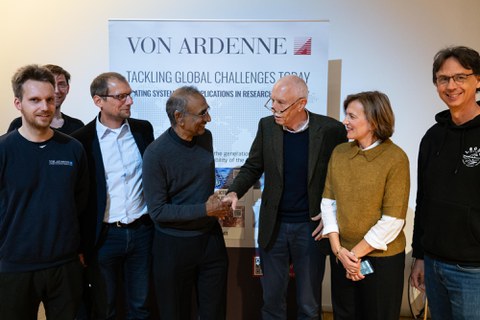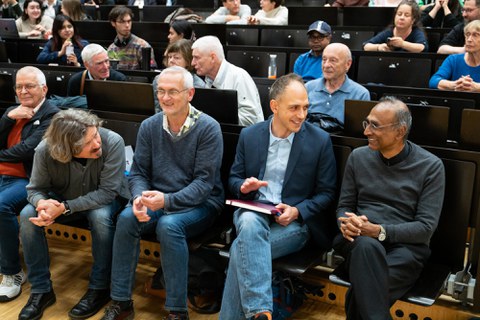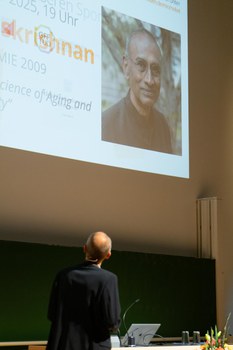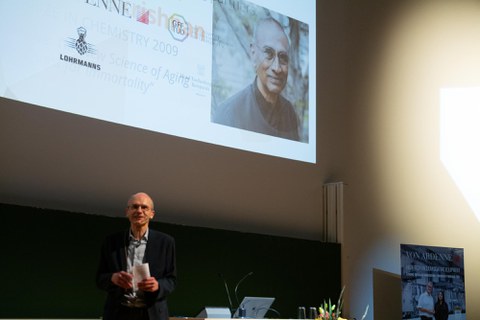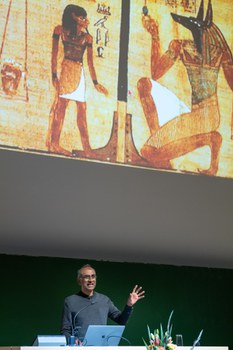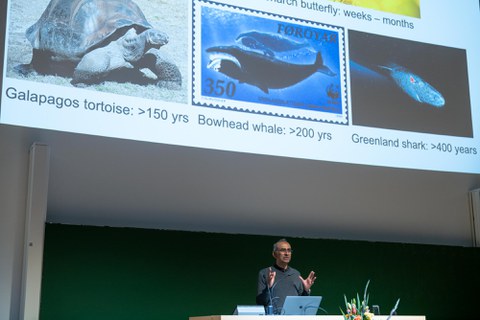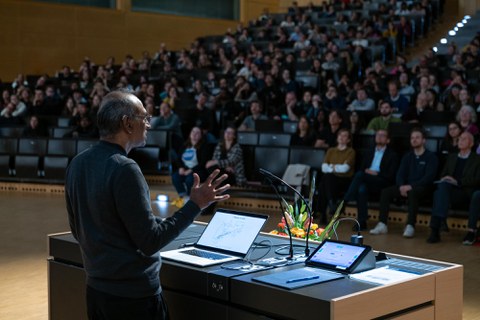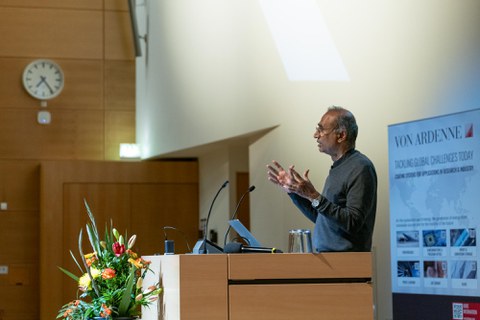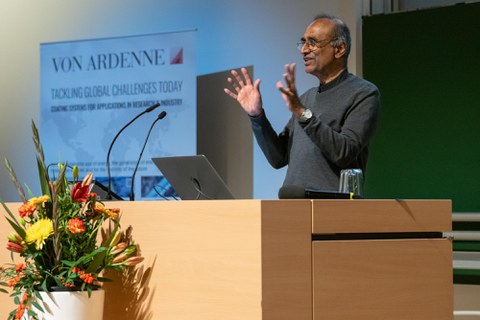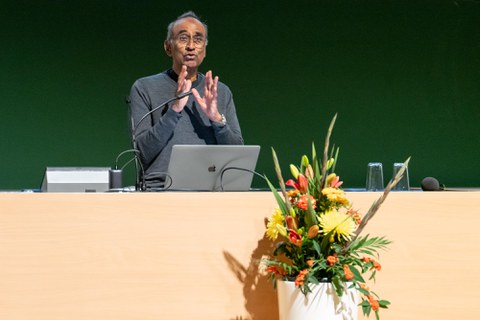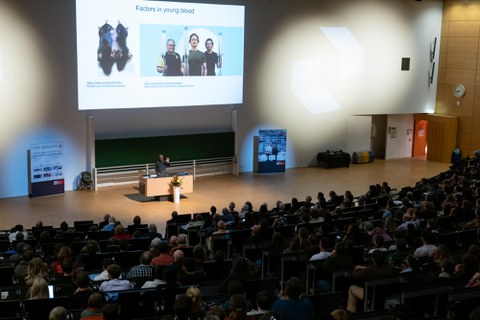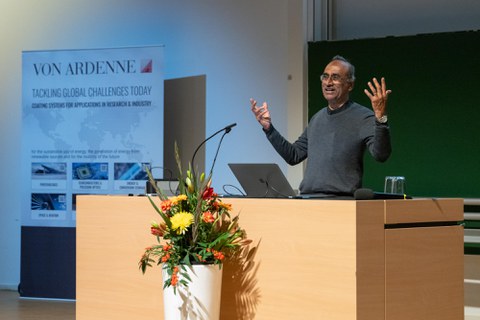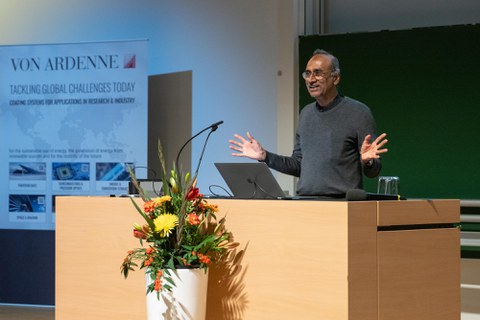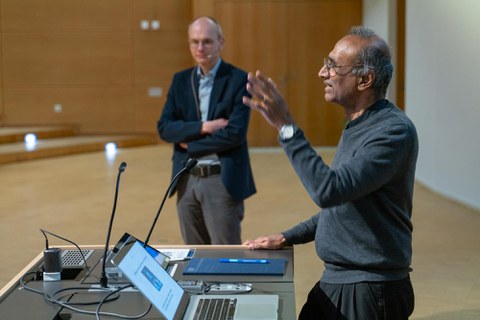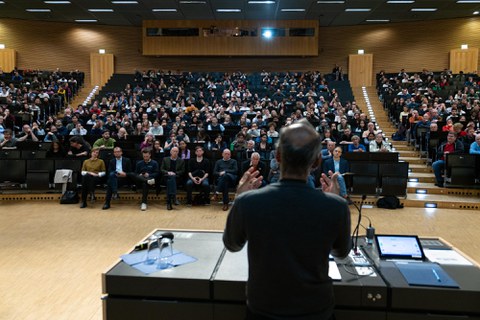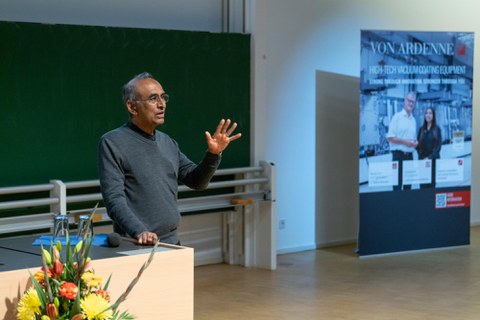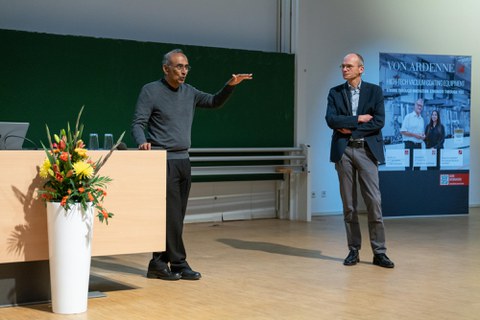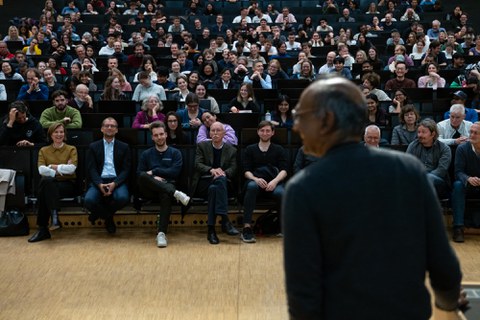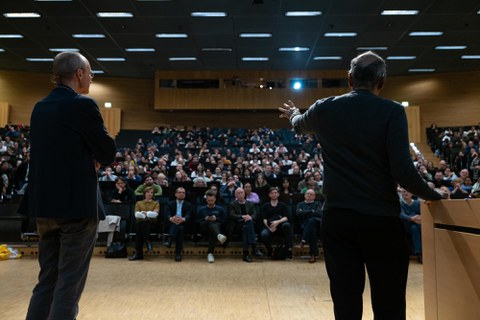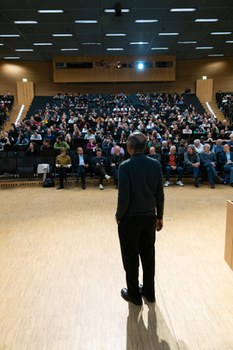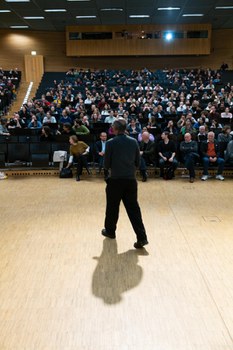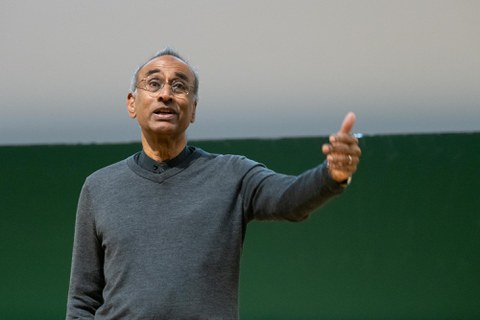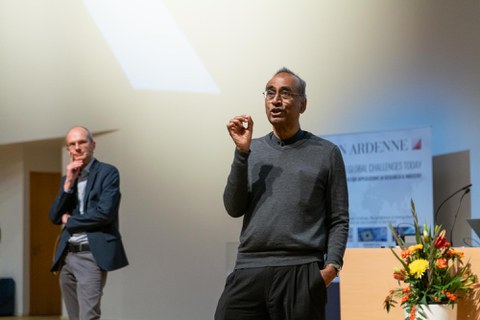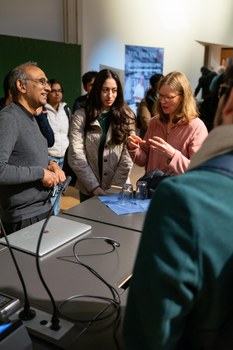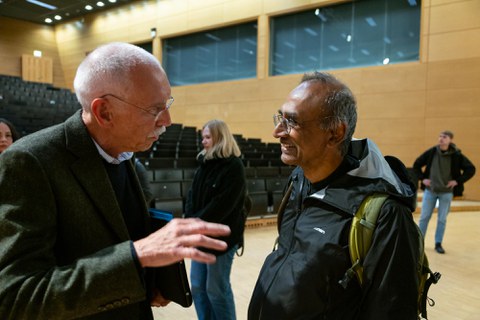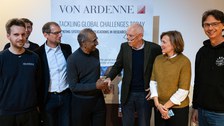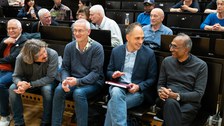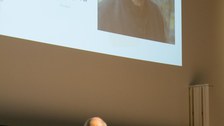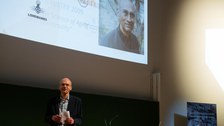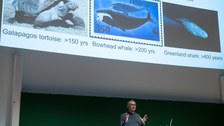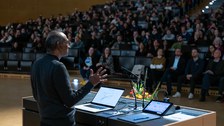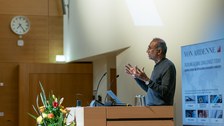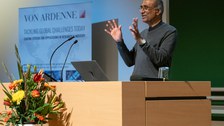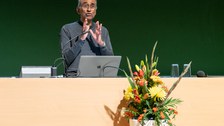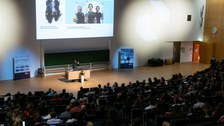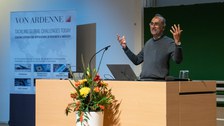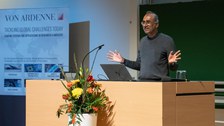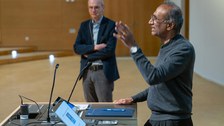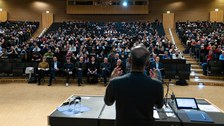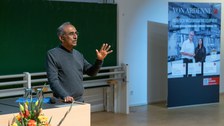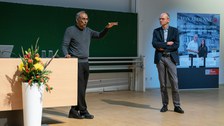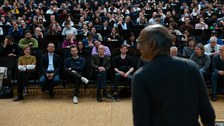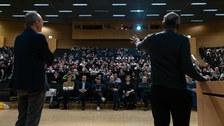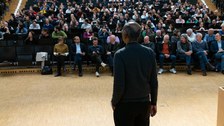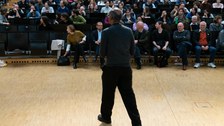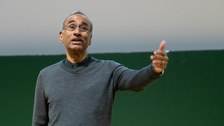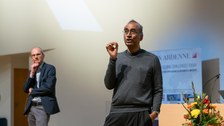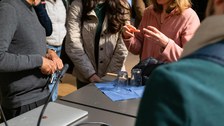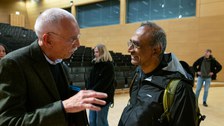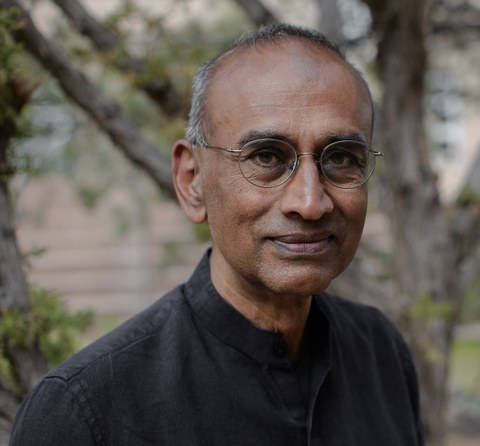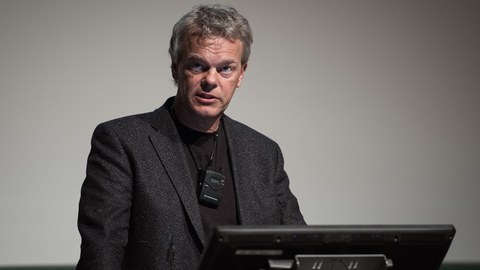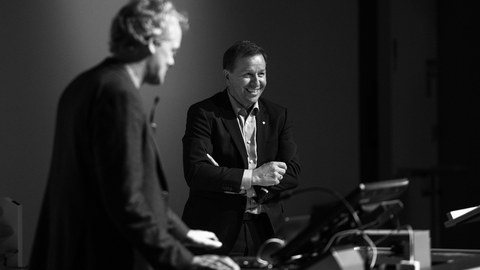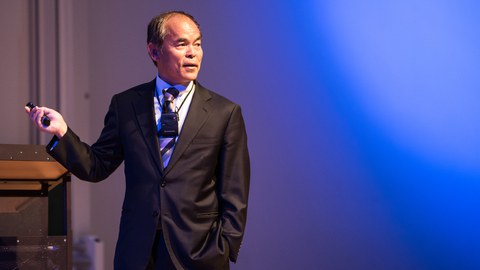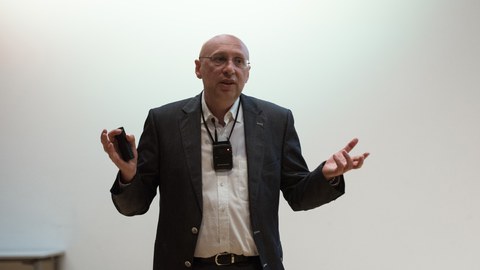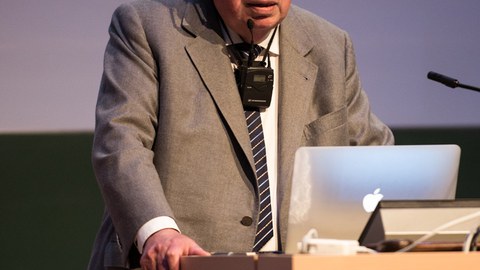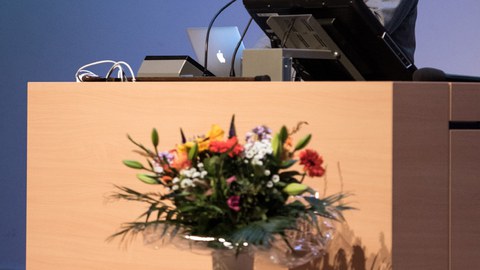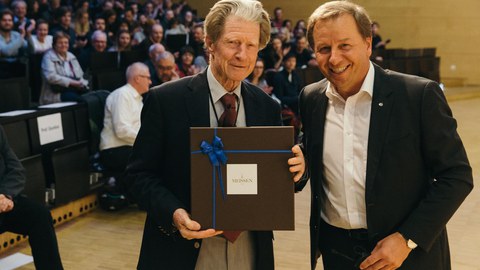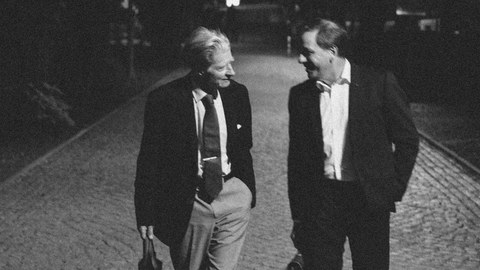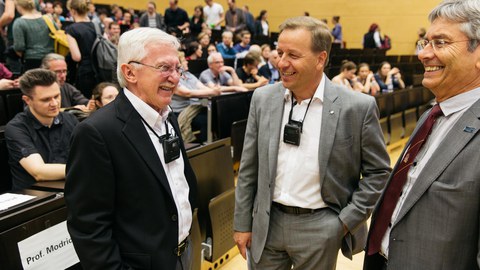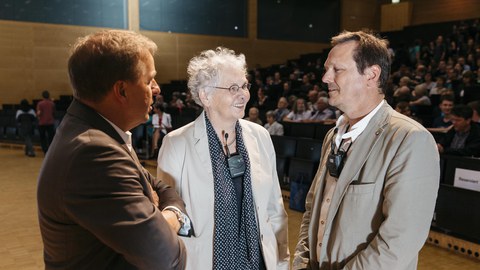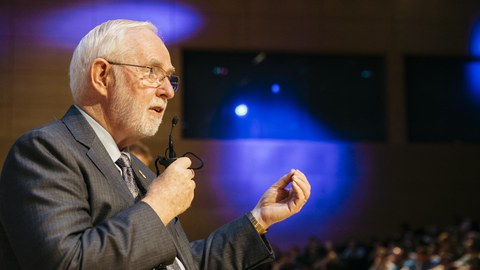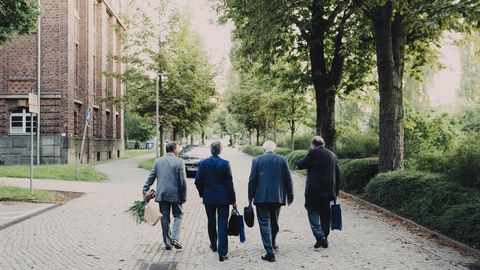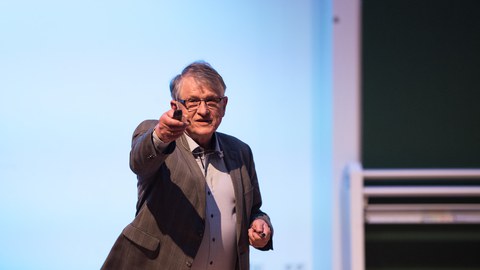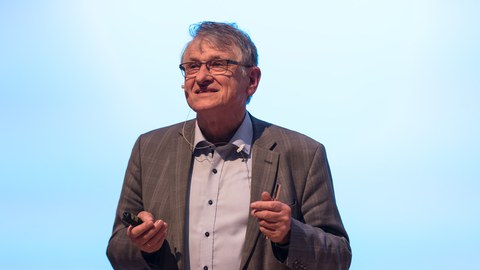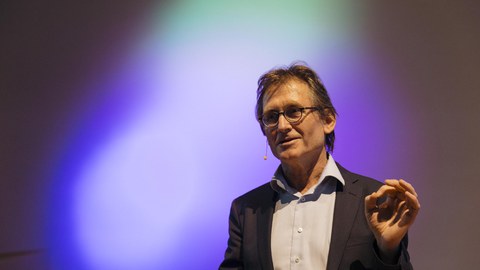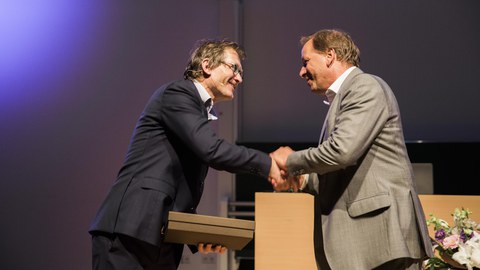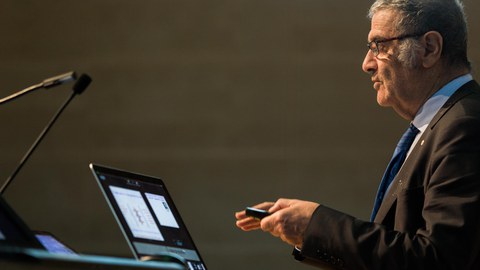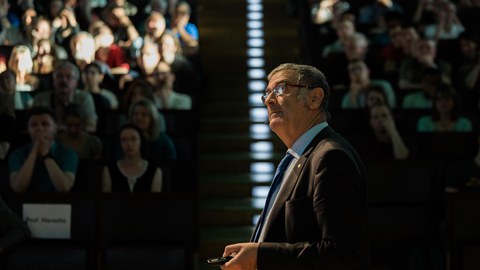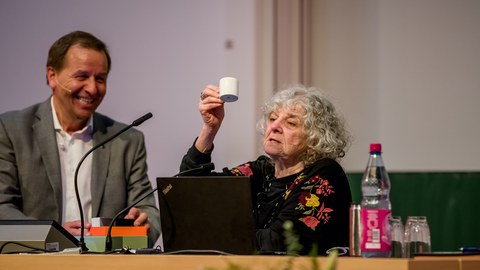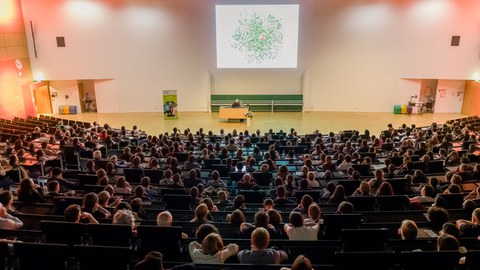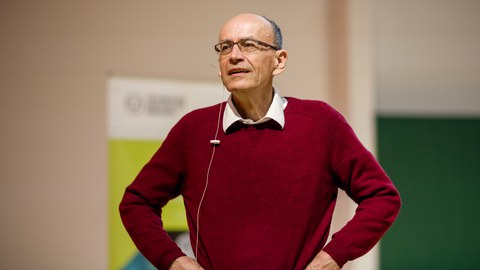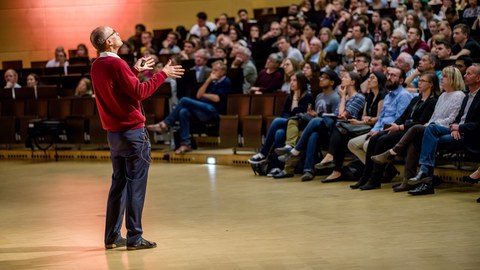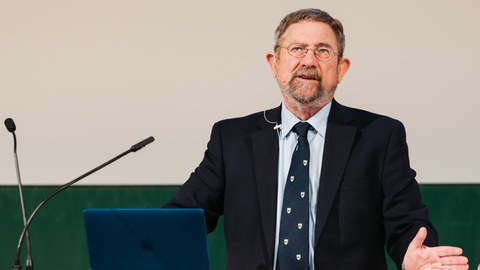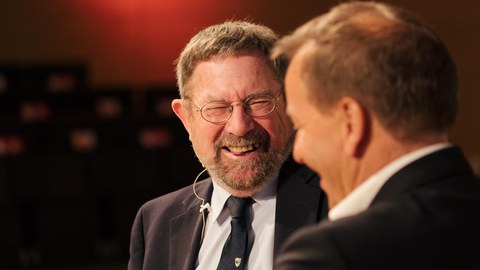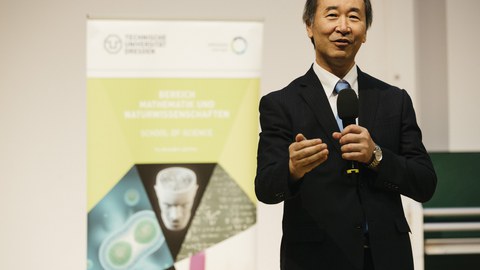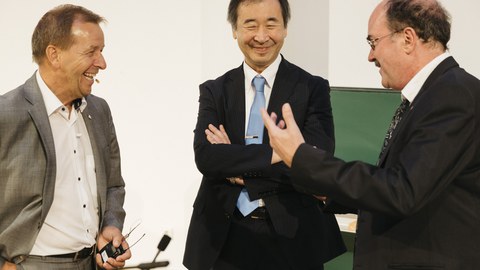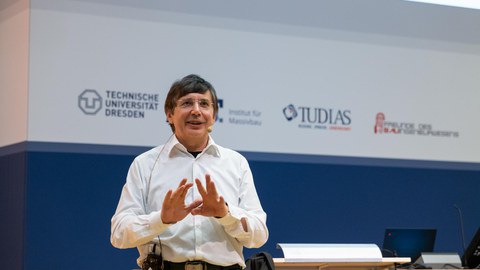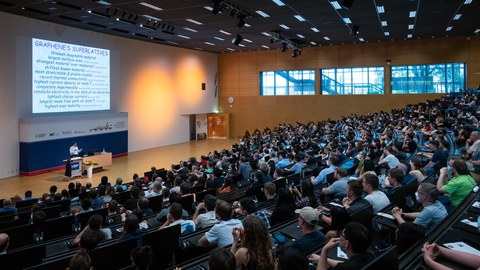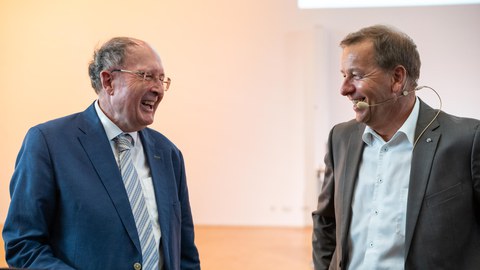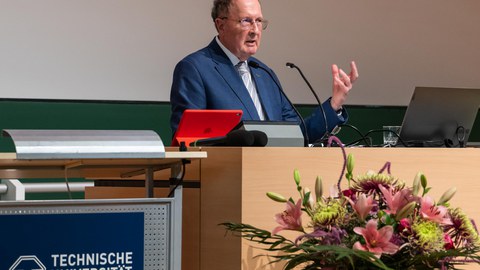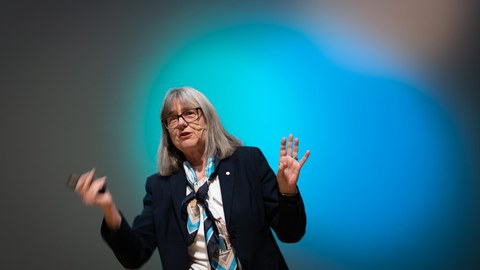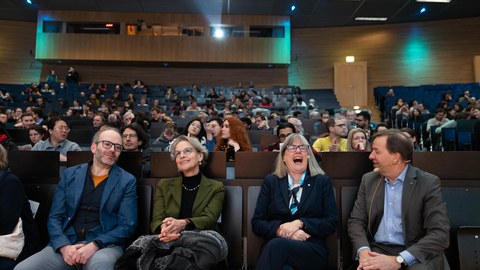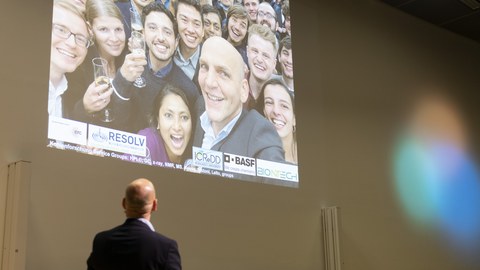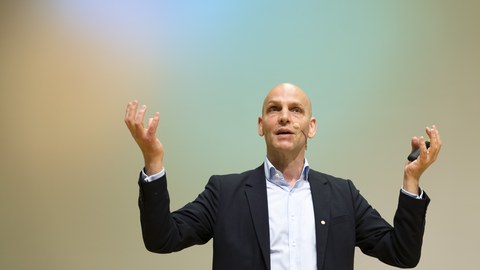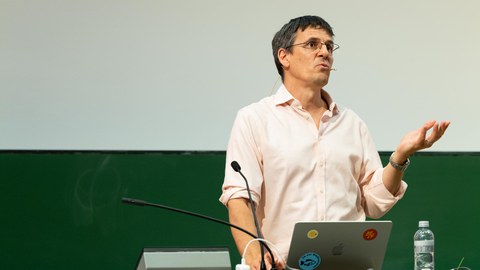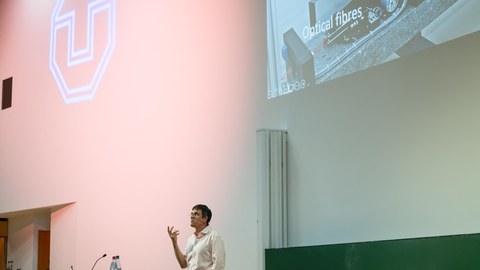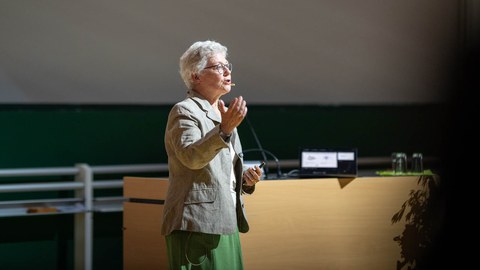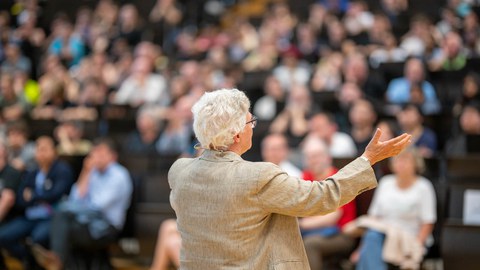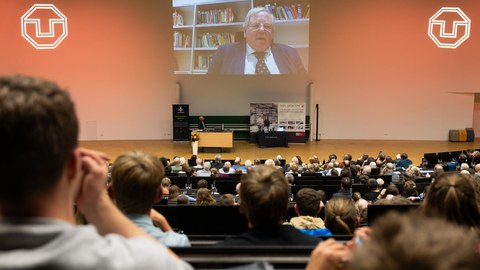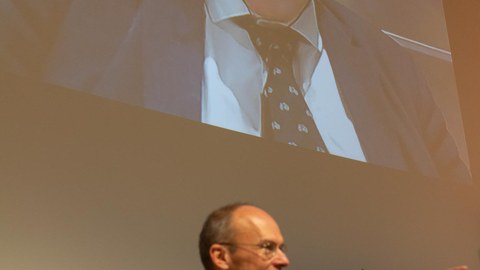Nobel Laureates at TU Dresden
Table of contents
Nobel Laureate series 2025
Venkatraman (Venki) Ramakrishnan
Nobel Prize in Chemistry 2009 "for studies of the structure and function of the ribosome"
Public lecture: Why We Die: The New Science of Aging and the Quest for Immortality
Tuesday, 21 October 2025, 7 pm
Audimax, TU Dresden
About Venki Ramakrishnan:
Venki Ramakrishnan received his bachelor’s degree in physics from Baroda University in India in 1971 and his Ph.D. in physics from Ohio University in 1976. He then studied biology for two years at the University of California, San Diego before beginning his postdoctoral work with Peter Moore at Yale University. After a long career in the USA at Brookhaven National Laboratory and the University of Utah, he moved to England in 1999, where he has been a group leader at the MRC Laboratory of Molecular Biology in Cambridge. He received the Nobel Prize for Chemistry in 2009 and was the president of the Royal Society from 2015-2020.
In 2000, Ramakrishnan’s laboratory determined the atomic structure of the 30S ribosomal subunit and its complexes with ligands and antibiotics. This work led to insights into how the ribosome “reads” the genetic code, as well as antibiotic function. Ramakrishnan’s lab subsequently determined high-resolution structures of functional complexes of the entire ribosome at various stages along the translational pathway, which led to insights into its role in protein synthesis during decoding, peptidyl transfer, translocation and termination. For the last decade, his laboratory has been applying cryoelectron microscopy to study eukaryotic and mitochondrial translation, especially initiation of translation and translational regulation.
Ramakrishnan is the author of two popular books, Gene Machine (2018), a very frank popular memoir about the race for the structure of the ribosome, and more recently, Why We Die: The New Science of Aging and the Quest for Immortality (2024).
Public lecture: Why We Die: The New Science of Aging and the Quest for Immortality
The knowledge of aging and death has driven human culture, including our religions, ever since we became aware of our mortality. For much of our existence there was not much we could do about it, but over the past few decades, biology has made major advances in our understanding of the causes of aging, thus for the first time opening up the possibility of intervening in the process. At the same time, the combination of longer lives and reduced fertility rates means that many societies are faced with an aging population. This has led to a large amount of investment in aging research from governments as well as private industry funded largely by tech billionaires, and led to a both real advances and a large amount of hype. In this talk I will discuss some of the key findings about why and how we age and die and prospects for the future. I will also talk a bit about the possible consequences of societies with extremely long-lived populations.
Contact
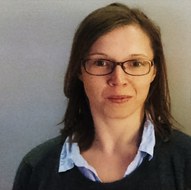 © Nicole Gierig
© Nicole Gierig
Public Relations Advisor
NameNicole Gierig M.A.
Send encrypted email via the SecureMail portal (for TUD external users only).

